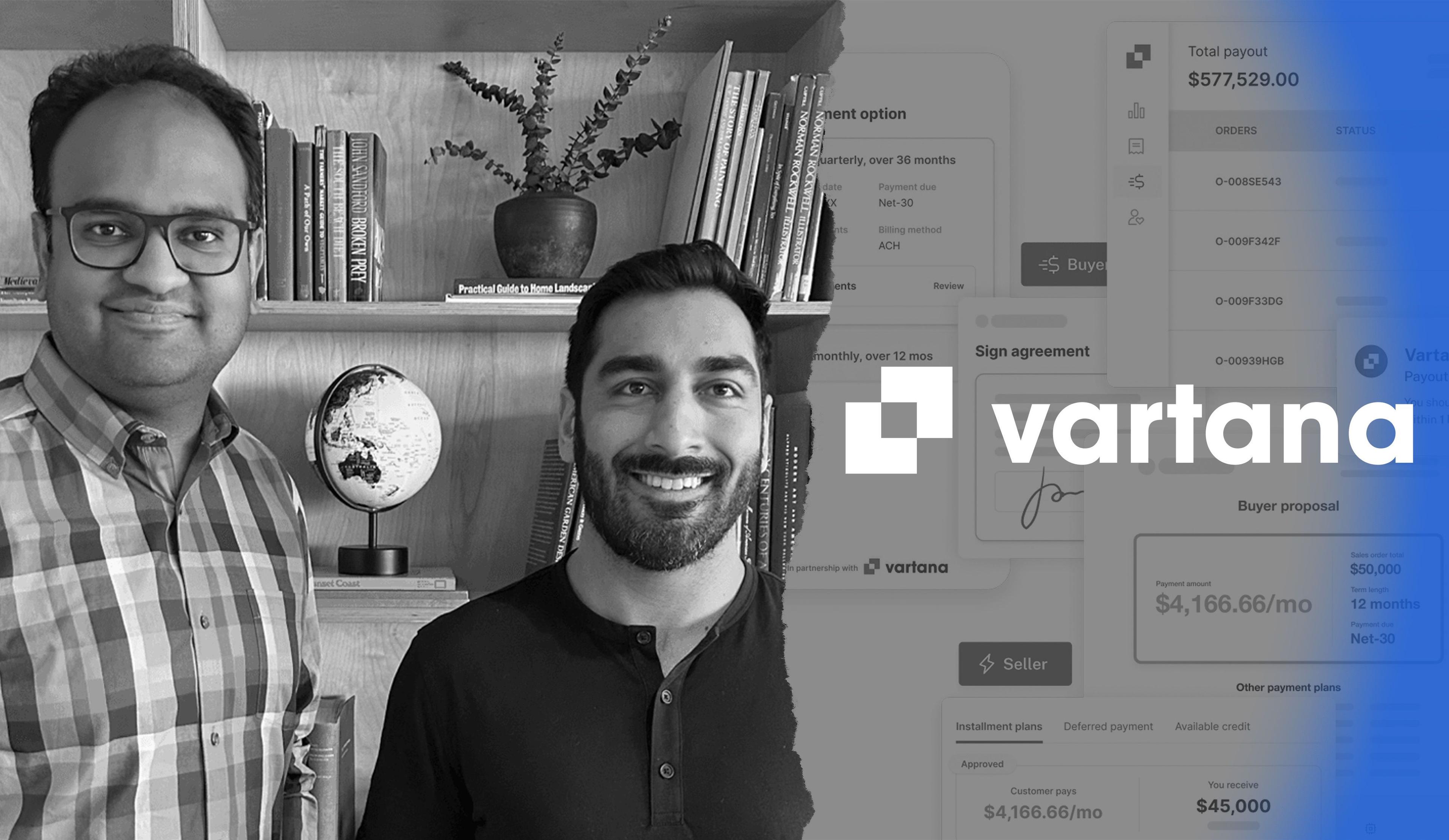
Investment Rationale
June 2023
Supercharging Sales Teams
Why we're investing in Kush and Ahmed of Vartana
Read moreInvestment Rationale
May 2020
6 minutes
Today, Truework announced its $30mm Series B as they continue to scale their consent-based identity verification platform that gives consumers control over their personal and professional information. We at Activant are proud to have led the round and to partner with existing investors Sequoia Capital and Khosla Ventures, in addition to the CEOs / founders of LinkedIn, Plaid, Checkr, and Docusign.
Investment Rationale
May 2020
6 minutes
All transactions are centered around trust, especially those that define our lives: buying a home, applying for a new job, or taking out a loan to start a business. Yet in today’s digital world, we’re less likely to face our counterparties in person, increasing the need for identity verification.
Verifications can take on multiple forms — from ID scanning to criminal background checks — but the most significant transactions principally involve our credit scores and verifications of income and employment.
Today, both are dominated by a handful of credit bureaus whose combined market caps are north of $70 BN. But as more of our transactions and workflows are digitized, the cracks in the current identity infrastructure are beginning to show.
We see two potential entry points to build a better system:
The first is the credit score. While fraught with issues of opaqueness, transferability, and fraud, credit scores are deeply entrenched in American society as the gateway to the financial system. And from a cold start, they are incredibly difficult to disrupt as they are built on decades of historical data.
Verification of employment and income (VOE / VOI) plays an equally important role in major transactions. However, unlike credit scores, VOE / VOI isn’t innately evergreen: the data is only as useful as it is fresh, and crucially 70% of data remains outside of any system. Instead, it sits with the near 6 million US employers, not a handful of banks, and is shared via phone and even fax machine.
Furthermore, the market is undergoing four structural shifts that are accelerating the opportunity to use verification of income and employment as the wedge to re-architect the entire identity layer:
Following the Cambridge Analytica scandal and the subsequent government push towards data consent with GDPR and CCPA, consumers are paying more attention to when and where their data is shared. Most consumers are aware that their credit scores are stored with the bureaus, but most employees are unaware that their employment and income data may be shared without their knowledge with lenders, credit card companies, and even alumni offices. This lack of transparency creates a fundamental disconnect between what consumers expect and what the current infrastructure can provide.
The rise of digital lending platforms — from mortgages to auto, to personal loans, to student loan refis — is driving the need for fast, transparent, API-based verification solutions. New-age lenders and incumbents going through successful digital transformations are inducing step-function improvements in customer experience. This is something we’ve seen first-hand in the mortgage space with our portfolio company , a full-stack mortgage tech platform. However, the customer experience is only as good as the data infrastructure that sits underneath. VOE / VOI is traditionally a black box, with lenders and applicants left in limbo or even at risk of losing their dream home or job when verifications are delayed.
As the future of work continues to evolve, the labor force is becoming more complex. Today’s workers are changing jobs more frequently than ever, are holding multiple jobs at the same time, and are increasingly steering towards more flexible work arrangements (e.g. the gig economy and remote work). Existing infrastructure can’t support this increased complexity, heightening the need for modern and flexible platforms for today and tomorrow’s workforce.
A new wave of cloud-based HR platforms like Gusto and Bamboo HR are gaining market share. These platforms put the employee first, an approach that is fundamentally at odds with incumbent solutions that have purposefully avoided engaging the employee. In addition, modern HR platforms are API-first, creating an opportunity to enable employers and employees to automate verification requests and trust that their sensitive data is secure.
Truework’s platform dramatically improves the experience and outcomes for all parties involved in the verification process.
For verifiers, Truework’s API-based platform enables automated employment verifications with industry-leading turnaround times, accuracy, and transparency.
For employers, Truework automates all manual processes associated with verifications, both those initiated by 3rd party verifiers like lenders and those initiated by employees. Truework stores data with best-in-class security (including ISO27001, SOC2 Type 1 & 2) and ensures sensitive information no longer travels via email, fax, or paper. Truework also assists employers with social service verifications, helping current or former employees in applying for assistance, and streamlining communications with government organizations at a critical time.
For employees, Truework finally gives them agency and puts sensitive data back in their hands. Employees are notified every time a request is made, and importantly are able to check their details to ensure accuracy via a secure and easy-to-use platform. This is of vital importance, as any errors in an employee’s record can have adverse effects on live applications and can unknowingly follow them for years.
By leading with consent and ensuring accuracy, speed, and transparency, Truework builds trust with consumers, employers, and verifiers alike. Over time, Truework plans to expand into every aspect of identity verification and create a holistic identity API that puts the individual in control.
We are incredibly excited to partner with Ryan, Ethan, Victor, and the entire Truework team as they transform the identity verification process and unlock the next wave of the digital economy.
Latest perspectives

Investment Rationale
June 2023
Why we're investing in Kush and Ahmed of Vartana
Read more
Market Perspective
May 2023
What can we learn from the business models of the past to weather today's market?
Read more